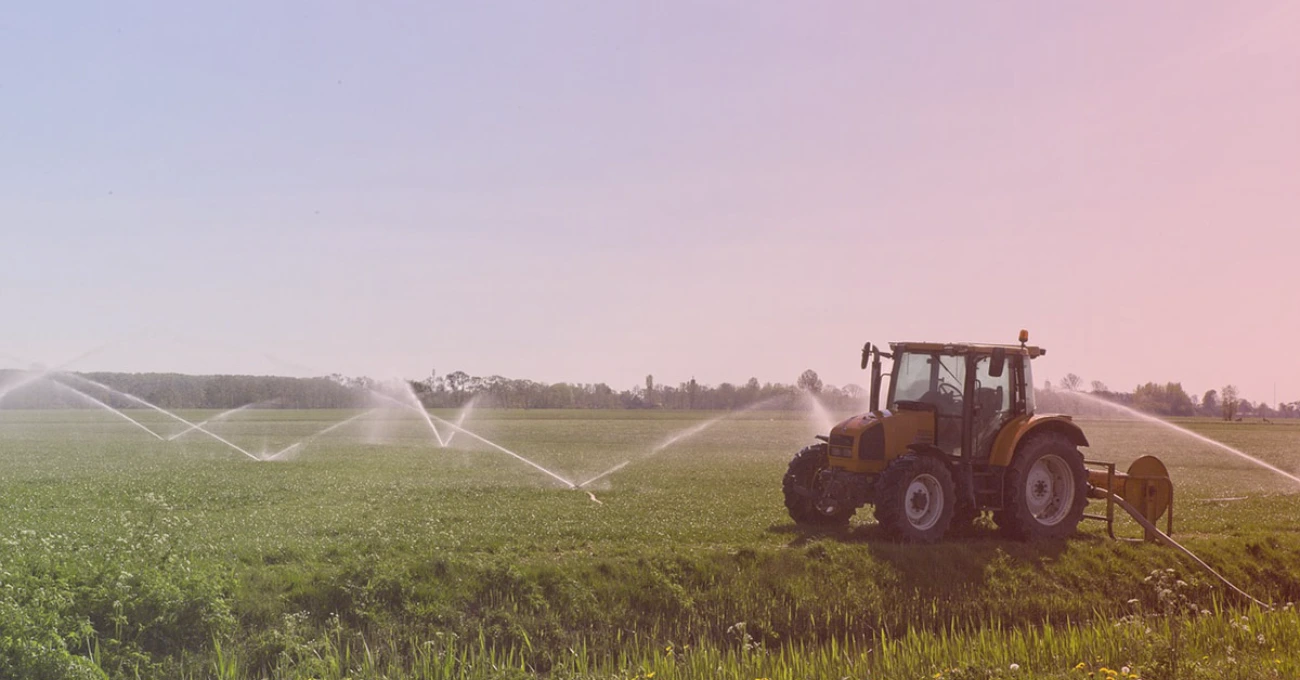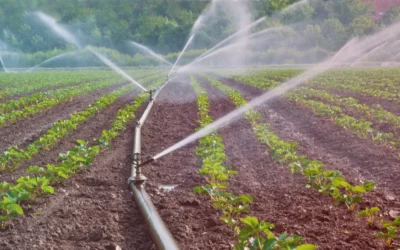Modern Methods of Water Management in Organic Farming for 2022
Organic farming is popular these days because it creates healthier soil, cultivates more sustainable yields, is more appealing to customers while reducing the need for harmful pesticides or herbicides. However, organic farmers still have to take care of the land they cultivate, which means they need to utilize their water wisely. In order to maximize their profits, organic farmers need to be on top of the latest trends in water management in organic farming.
Water management in organic farming challenges
Organic farmers must contend with a number of water management challenges. These include both on-farm and off-farm water sources, which can vary based on factors like location, water agencies, and seasonality. On-farm water sources include rainwater, surface water, or groundwater, while off-farm sources can come from streams, rivers, or lakes used to irrigate crops. Faced with dwindling resources and changing growing conditions, farmers must innovate to ensure their crops are healthy and profitable.
Strategies for water management for organic farms should follow a three-pronged approach that includes monitoring and managing water, conserving water, and optimizing irrigation techniques. Water management strategies should also account for conservation techniques like alternate wetting and drying (AWD) to minimize waste. Farmers use AWD systems to alternate between saturating fields with water and then allowing them to dry out completely before watering again.
Water management strategies are especially important for organic farms. With a greater need to rotate crops throughout their growing cycles, organic farmers rely heavily on rainfall or on-farm water sources to get started. To ensure these precious resources are conserved and re-used as much as possible, farmers should look into modern methods of water conservation that save both water and money. Some new techniques include investing in micro-irrigation systems that combine small amounts of water with chemical fertilizers directly to plants’ roots.
Modern method of water conservation
In organic farming, there are three steps farmers can use to help in water conservation:
- Build compost heaps to fertilize fields.
- Water during mornings and evenings, as evaporation is less then.
- Use mulch or manure to prevent water from evaporating.
A farmer can also use a drip irrigation system, a modern method of water conservation, which helps water reach plants roots directly. Solar-powered pumps can be used in drier areas to irrigate farms even at night time when energy from solar panels is stored in batteries.
When comparing drip irrigation with flood irrigation, we can see that they both provide enough water to crops. Flood irrigation loses 10-30% of its water due to evaporation and deep percolation. In contrast, drip irrigation loses only 2-5% of its water due to evaporation and not more than 1% of it goes down as deep percolation.
You can also use some other modern methods of water conservation. For example, greywater or blackwater recycling. This is the collection and storage of household wastewater that is used on landscapes instead of potable (drinkable) water. In urban areas, water flows from sinks, showers, and laundry through sewer systems to treatment plants where it is treated before being discharged back into rivers and lakes.
Advantages of smart irrigation systems over conventional ones
Smart irrigation systems are able to measure soil moisture content and adjust the water flow accordingly. They can also tell you when your plants need water, no matter where you are. This is a very efficient way to manage your water usage, especially if you’re growing expensive crops that require less watering during certain stages of their growth. For example, farmers will often have different irrigation systems to take care of newly sprouted seeds and fully grown plants; these smart systems allow them to do so without any effort.
These smart irrigation systems can also regulate how much water is used at any given time. A smart system will apply less water to plants that do not need it as much at a given time. With conventional irrigation systems, farmers have to manually control everything from start to finish, which can get pretty tiring after a while.
They’re great for helping you save water, which is important since we’re already facing a global shortage! The food demand by population growth has necessitated changes in food production technology, one of them being water management in organic farming.
Nowadays, smart irrigation systems are used by farmers to ensure food security. These devices regulate water flow based on several factors, such as soil moisture and plant growth stages. It also provides timely warnings to its users when a section or a whole field requires more water. This is advantageous over conventional methods of water management because it saves both time and money by allowing farmers to manage fields from afar using their mobile phones or laptops.
The future of farm efficiency
There are many ways that farm efficiency is starting to evolve with technology, everything from robotics and drones to AI systems are opening up new possibilities for monitoring water, energy, and fertilizer use in organic farming. These methods mean more data to analyze and, ultimately, they can empower farmers to improve their practices through 21st-century technology.
For example, a farmer who was drenching his crops in fertilizer might be able to make small adjustments based on detailed information about plant health. Sensors like these are modern methods that will help water management for organic farms.
The impact of such a device on food production is enormous as it saves water and ensures that every drop used is put to good use. For instance, when watering a field, farmers tend to over-irrigate since they cannot see their crops growing; with smart irrigation systems, you can tell exactly how much water your plants need at any given time. In order to have sustainable agriculture and cope with climate change, we will need to adopt more efficient technologies for water management in organic farming.
Smart water solutions from Benchmark Labs
Benchmark Lab’s weather forecasting AI specializes in delivering highly accurate data to help predict water needs for farms. Benchmark Labs utilizes Artificial Intelligence technology to help growers make better decisions when managing water, predicting heat waves, and predicting frost events.
Using machine learning algorithms, Benchmark Labs’ system can assess can help farmers determine how much water and fertilizer they will need. This technology allows farmers to precisely manage their water supply without risking runoff.
——
Technology can help you improve water management in your organic farm. Benchmark Labs can help you get started with in-depth weather data to help you predict weather events and adjust your watering strategy appropriately. If there are any other topics related to water management, feel free to sign up to learn more.
Recent Posts
Benchmark Labs Launches In-Situ Evapotranspiration Forecasts
Benchmark Labs the leading provider of AI & IoT-driven weather forecasting solutions for the agriculture, energy, and insurance sectors is pleased to announce the global launch of their in-situ evapotranspiration forecasting technology. We previously talked about...
How Vineyard Soil Sampling is Key to Wine Production
[dssb_sharing_button icon_bg="#636979" _builder_version="4.16" _module_preset="default" background_color="#324155"...
Factors Influencing Evapotranspiration and How to Measure it with AI
[dssb_sharing_button icon_bg="#636979" _builder_version="4.16" _module_preset="default" background_color="#324155"...




